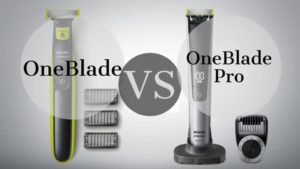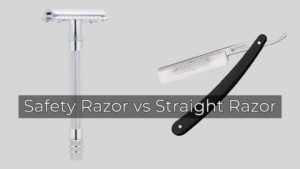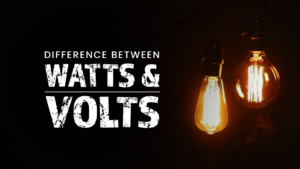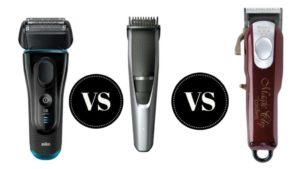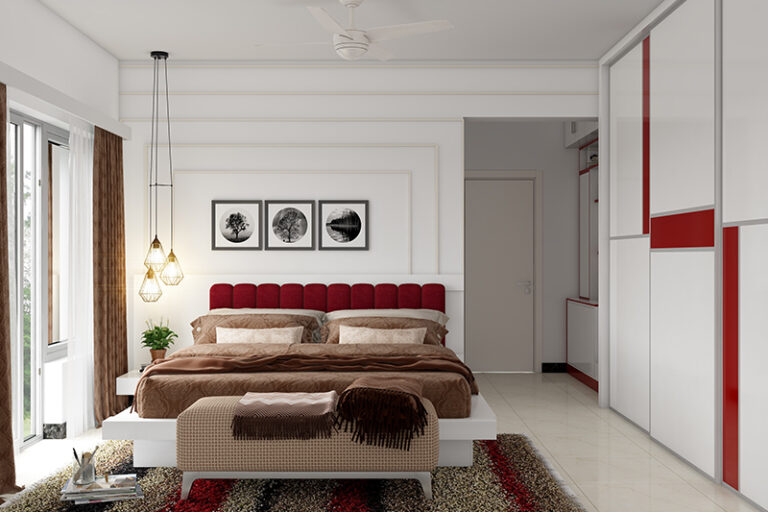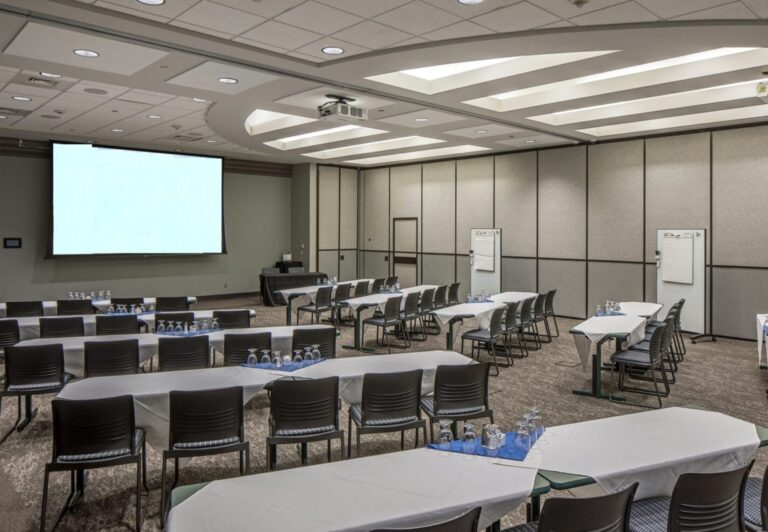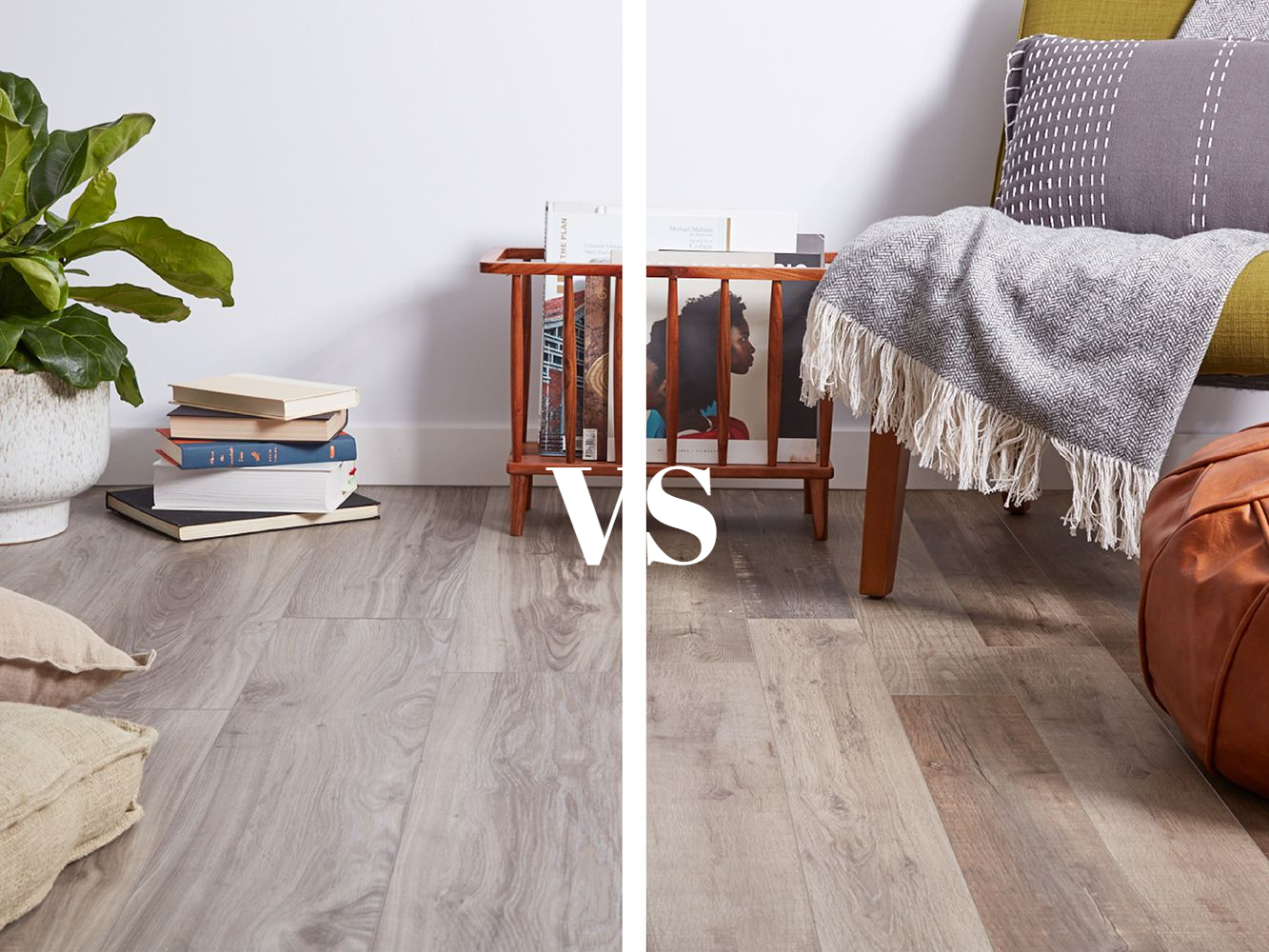
Vinyl and laminate flooring are trendy modern materials. It is a budget alternative to flooring. Both options look aesthetically pleasing and serve for a long time. Which of the two-floor coverings is better to choose? It is important to know well the characteristics of each of them.
Vinyl Flooring:
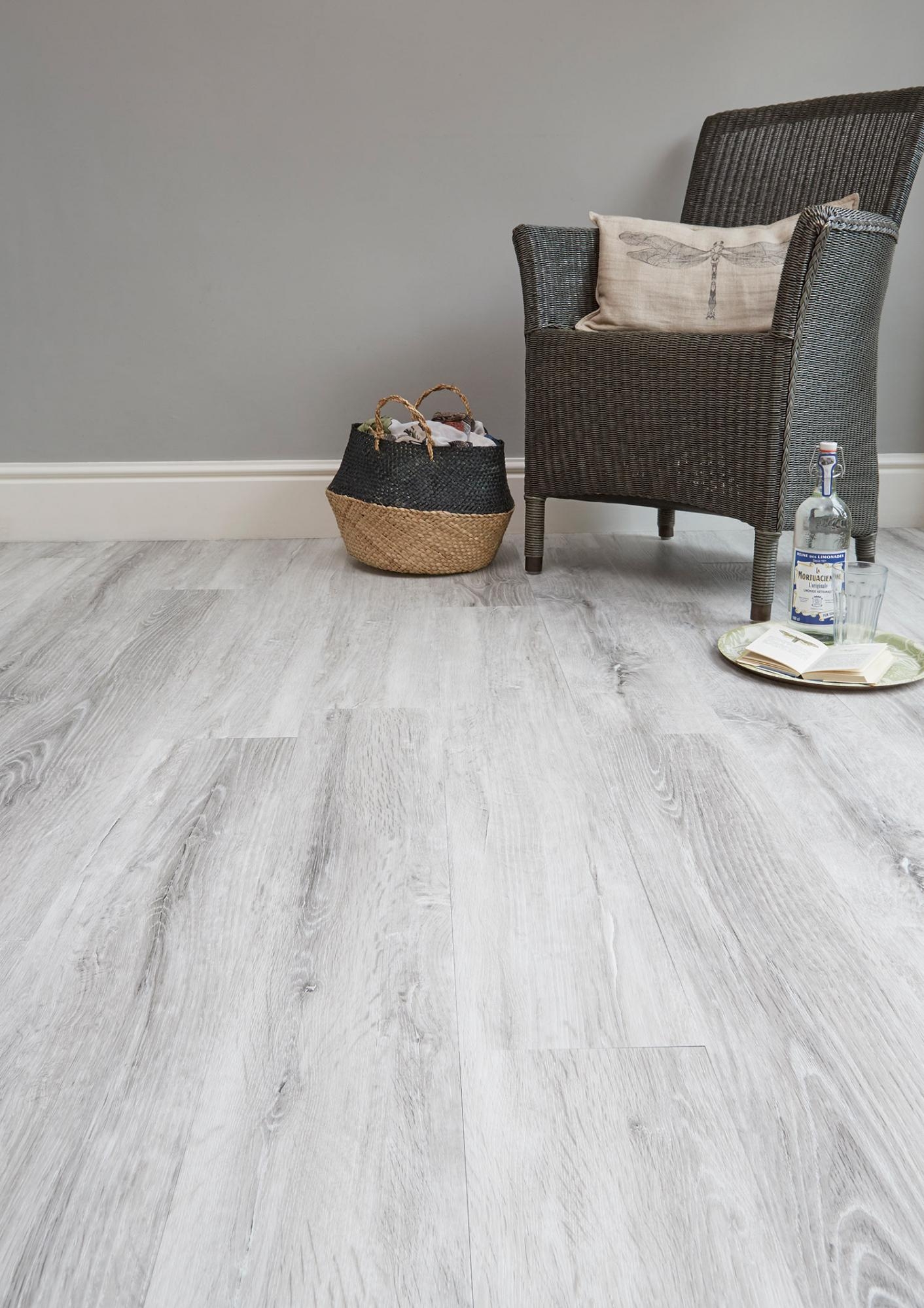
Characteristics
Vinyl floors are produced in rectangular dies (vinyl laminate) or tiles, and the tiles can be either classical or unusual in shape. The coating is made based on polyvinyl chloride, which obtains the polymerization of vinyl chloride.
Depending on the function, vinyl floors are divided into classes:
- Classes 23-31 – Household vinyl floor (for living quarters).
- Classes 32-42 – commercial floor (for offices, shopping centers, and other premises with high traffic).
- Classes 43 – special vinyl covering (for rooms with increased mechanical stress: industrial workshops, sports and concert halls, clubs).
Coverings of each class are made using unique technologies, taking into account all the requirements for the room.
Pros
The advantages of this coating include:
- An affordable price.
- Exceptional moisture resistance.
- Increased wear resistance (it can withstand very high mechanical loads due to its multi-layer structure).
- Aesthetics.
The top layer of vinyl tiles can imitate any wood, stone, leather, fabric, or even carpet. The best design solutions are presented in modern collections, which are almost impossible to distinguish from elite floors made of natural materials.
In addition, the variety of vinyl flooring makes it easy to choose a convenient installation method. Vinyl flooring comes in the form of self-adhesive tiles, snap-joint tiles with adhesive tape, roll-ups, and tiles glued to the substrate. Depending on the room’s characteristics, the optimal cost of installation, and other factors, you can choose any suitable option.
Cons
If we talk about the disadvantages, then there is one point that can raise doubts.
Vinyl chloride itself, from which polyvinyl chloride is obtained, is toxic and unsafe for health. But as a result of polymerization, it completely loses its harmful effect since it is in molecular bonds. However, when using vinyl flooring, it is vital to avoid overheating, fire, and damage to the protective layer to avoid releasing toxic substances. In case of fire, leave the premises as soon as possible.
For complete confidence in the safety of vinyl tiles, it is better to order them from trusted, reliable manufacturers. The best vinyl flooring companies strictly control production at every stage and check products for compliance with international quality standards.
Laminate Flooring:
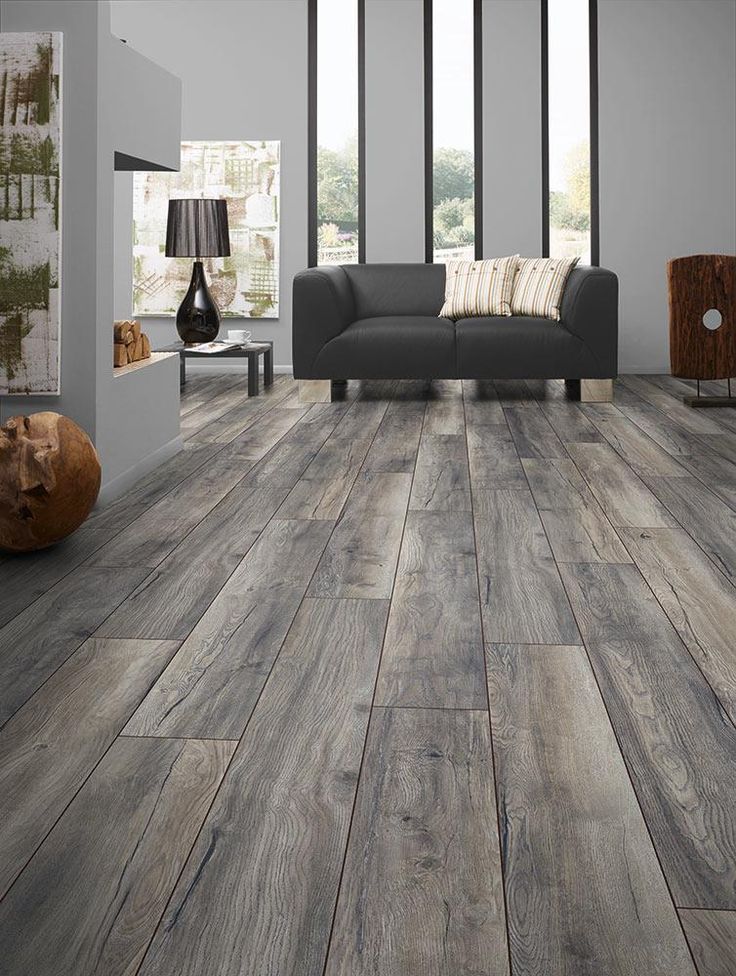
Characteristics
Modern, high-quality laminate flooring is tough to distinguish from expensive parquet flooring. Externally, this coating very naturally imitates any wood or other natural materials. Laminate is produced in the form of dies from several layers with a lock connection.
The lower stabilizing layer protects the structure from deformation. The next layer is a load-bearing layer made of high-density fiberboard. A lock is cut out in it, which holds the dies together.
It is the layer that determines the moisture resistance of the laminate, and it follows a decorative layer that defines the appearance of the laminate flooring. It is a layer of paper with a pattern applied to it. Skillful drawing can be stylized as natural wood, stone, ceramic material, or fabric. And a protective (laminating) layer is applied on top, which determines the wear resistance class of the coating. It can also be further processed to imitate natural material as realistically as possible.
Just like vinyl flooring, laminate flooring is divided into classes:
- Classes 21-23 – for home premises with a small load (bedrooms, offices).
- 31-34 classes – for residential premises with high traffic (corridor, living room) and commercial premises.
pros
The undoubted advantages of laminate flooring include affordable price, a variety of design solutions, aesthetics, originality, a wide range of products, the ability to choose the ideal option for any interior. In addition, the laminate is relatively easy to fit, while the high-quality coating is stable, perfectly retains its geometry, and, if used correctly, it serves for a long time.
Cons
As for the disadvantages, a lot depends on the manufacturer’s choice and the materials from which the laminate is made.
Moisture resistance and strength depend on the quality of each layer, especially the load-bearing one.
A separate issue is related to environmental friendliness.
The top layer of the die contains melamine or acrylic resins. The safest composition is considered to be an acrylic-based overlay. Its content increases the cost of the laminate, but such a coating is more environmentally friendly. Other types of laminate may contain formaldehyde, which is acutely toxic when overheated in a fire or damaged by the protective layer. It is important to remember this and follow the safety rules. In the event of a fire, just like in a situation with a vinyl floor, you must urgently leave the room.
Price
Vinyl and laminate for the price have a variety of options. But, the cheapest vinyl is two times more expensive than cheap laminate offers. The difference is not so prominent in the high price segment, but vinyl flooring is still 20-30% more expensive.
Environmental Friendliness
Laminate, despite various additives, mainly consists of wood fibers. On the other hand, Vinyl is entirely based on artificial materials (not counting SPC). At the same time, the emission of harmful substances into the air is at a minimum level for both coatings. But still, due to the composition, the laminate wins.
Water Resistance
Laminate is a moisture-resistant floor covering. There is also a waterproof laminate, but this protection lasts for a limited time in contact with water. Vinyl flooring is a 100% waterproof material. It can be washed with plenty of water and used in the bathroom, kitchen, and other wet areas.
Structure
A significant characteristic of a floor is its texture to the touch. A pleasant tactile sensation from walking barefoot is essential for home comfort. It also affects appearance. Laminate, thanks to the protective layer, can have a deeper and more natural pattern. Expensive laminate flooring options are virtually indistinguishable from natural wood. Vinyl flooring also has deep wood grain options, but this is a small number of costly items. In the low-cost segment, vinyl and laminate are similar in structure.
Weather Resistance
Laminate is designed for both commercial and home environments. It is pretty durable, but the vinyl floor was initially designed for heavy loads (up to storage rooms). Vinyl retains its wear-resistant properties even when damaged. Laminate flooring resists scratches from sharp objects better but is generally less durable.
Impact Resistance
Vinyl is a flexible coating. Most impacts from dropped objects will not harm you. In the worst case, there will be a dent. On the laminate, on the other hand, with a strong impact, chips appear, which leads to destruction.
Heat
Vinyl is thinner than laminate and also has less thermal insulation. Therefore, the laminate floor will be warmer. Using a backed interlocking vinyl can make the vinyl floor a little warmer but still colder than laminate flooring.
Warm Floor
Due to its high density and low thermal insulation, vinyl flooring is an excellent option for floor heating applications. Vinyl is very effective with underfloor heating systems. SPC vinyl is very close to tile in this respect. Laminate can be used with underfloor heating and improve efficiency by choosing the right flooring, but this requires many conditions and will be worse than vinyl.
Silence
Vinyl flooring is soft flooring. There is no noise and hum when walking and banging. Chateau vinyl is much quieter, but even the adhesive option or SPC is a quiet floor. Laminate is a hard and echoing floor covering. You can significantly reduce noise by using specialized substrates, but vinyl will still be more silent.
Walking Comfort
The elasticity of the vinyl floor makes it comfortable to walk on. Of course, the adhesive options are fragile, and SPC vinyl is stiffer, but it’s still more comfortable than laminate.
Fire Resistance
The fire resistance of laminate flooring is C (fl) s1 for almost all manufacturers, and all vinyl flooring has a class B (fl) s1. That is, vinyl is a class higher and safer in terms of this characteristic. At the same time, the laminate from the Spanish manufacturer Faus also has an increased fire resistance B (fl) s1, but this is an exception.
Repair
For minor damage to the laminate, we can use repair kits. But with significant damage, it isn’t easy to replace the board. If damaged, we cannot repair the vinyl floor. But replacing one bar is much easier. It is also important that the vinyl floor does not lose its properties when damaged, but still the ball for the laminate.
Choice of Decors, Designs
Vinyl flooring comes in a variety of tile/stone or wood color options. But the laminate is much more varied in size and color. The choice of laminate flooring can satisfy any request, both in natural decors and in unusual solutions.
Simplicity and Cost of Installation
Vinyl flooring is effortless to install. You need a minimum number of tools and reading the instructions. Also very important is the absence of dust and dirt during installation. The price for laying vinyl is not very high. But the laminate is less whimsical to the base and has a very simple locking system. The cost of installing laminate flooring is lower than vinyl flooring.
What Should You Choose?
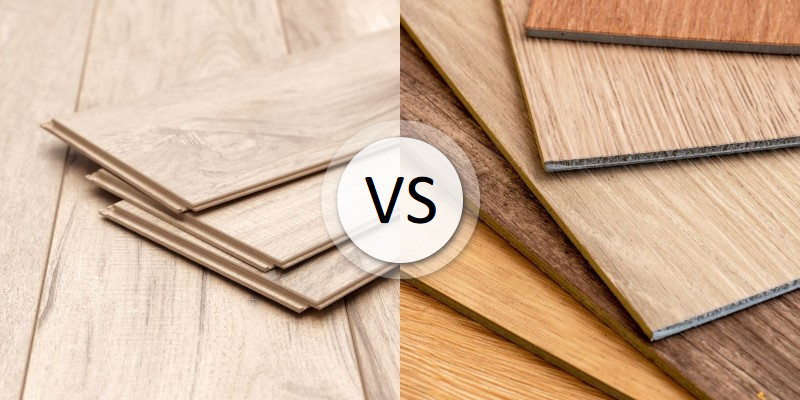
Both have many advantages but also minor disadvantages. If you are looking for many decors at a reasonable price and will not use underfloor heating, you can choose laminate. If a quiet and waterproof floor is important to you, then, by far, the choice is vinyl.
Much depends on the properties of the room. For rooms with high humidity (bathroom, kitchen, balcony), we recommend choosing a vinyl floor since not all types of laminate are resistant to moisture. Kährs, the world leader in parquetry, also produces vinyl floors. These coatings are solid, environmentally friendly, and durable.
If humidity is not so important, and you like a stylish, elegant laminate that harmoniously fits into your interior, feel free to choose the option you desire.

